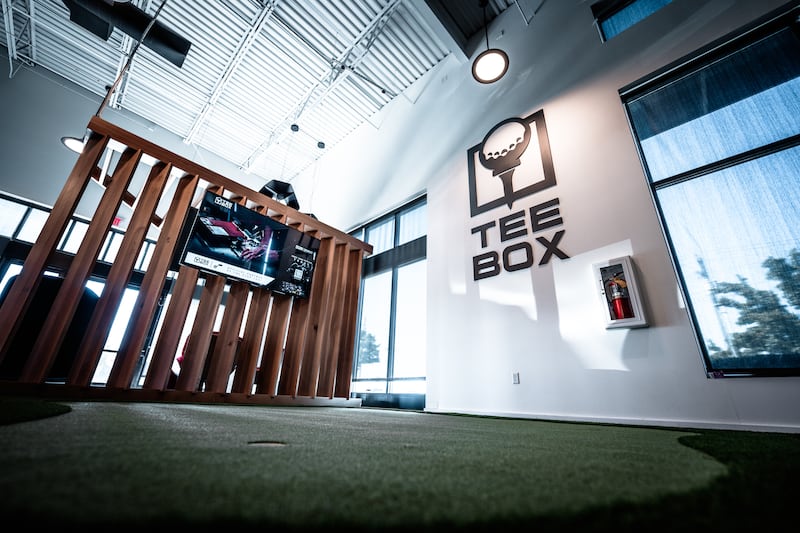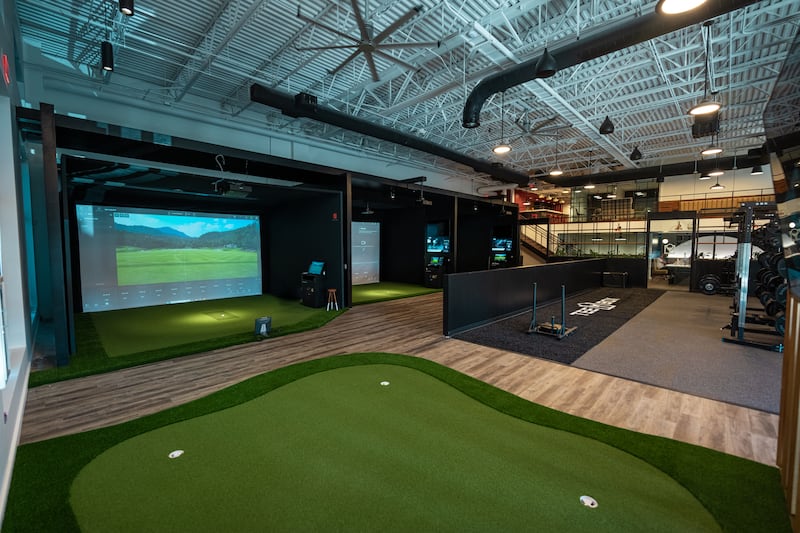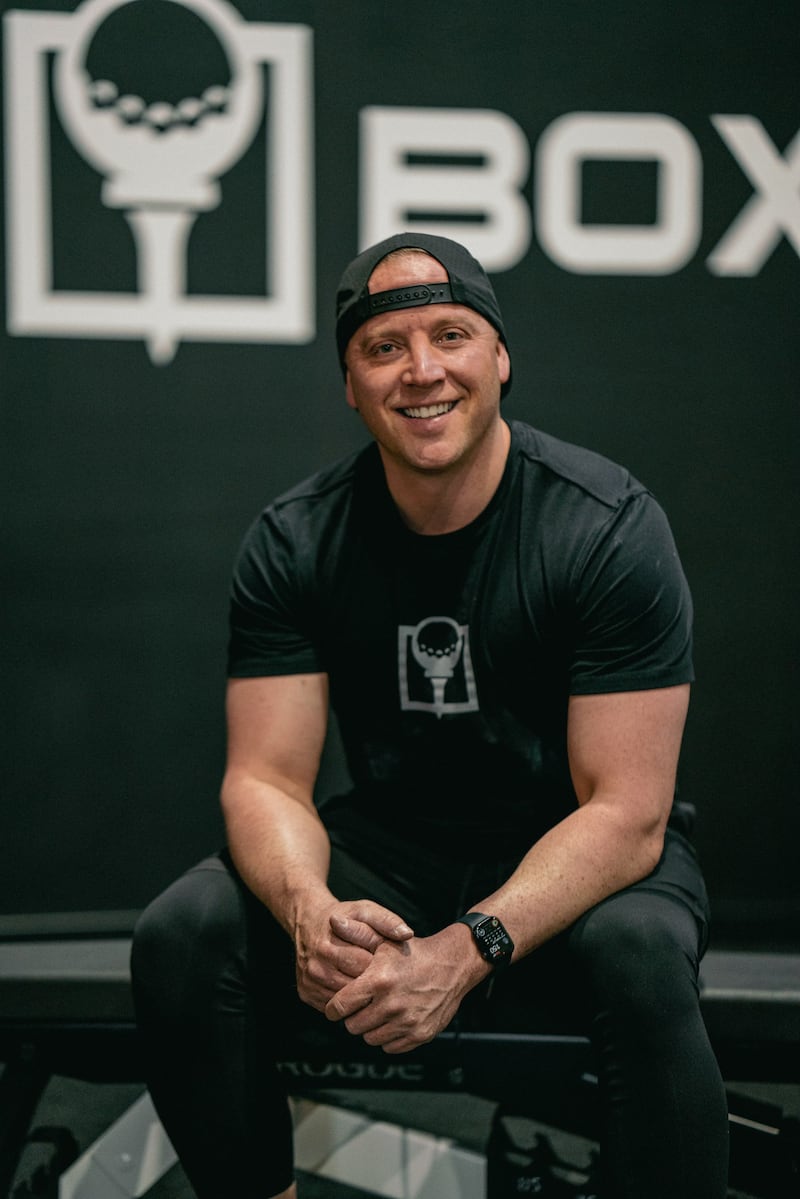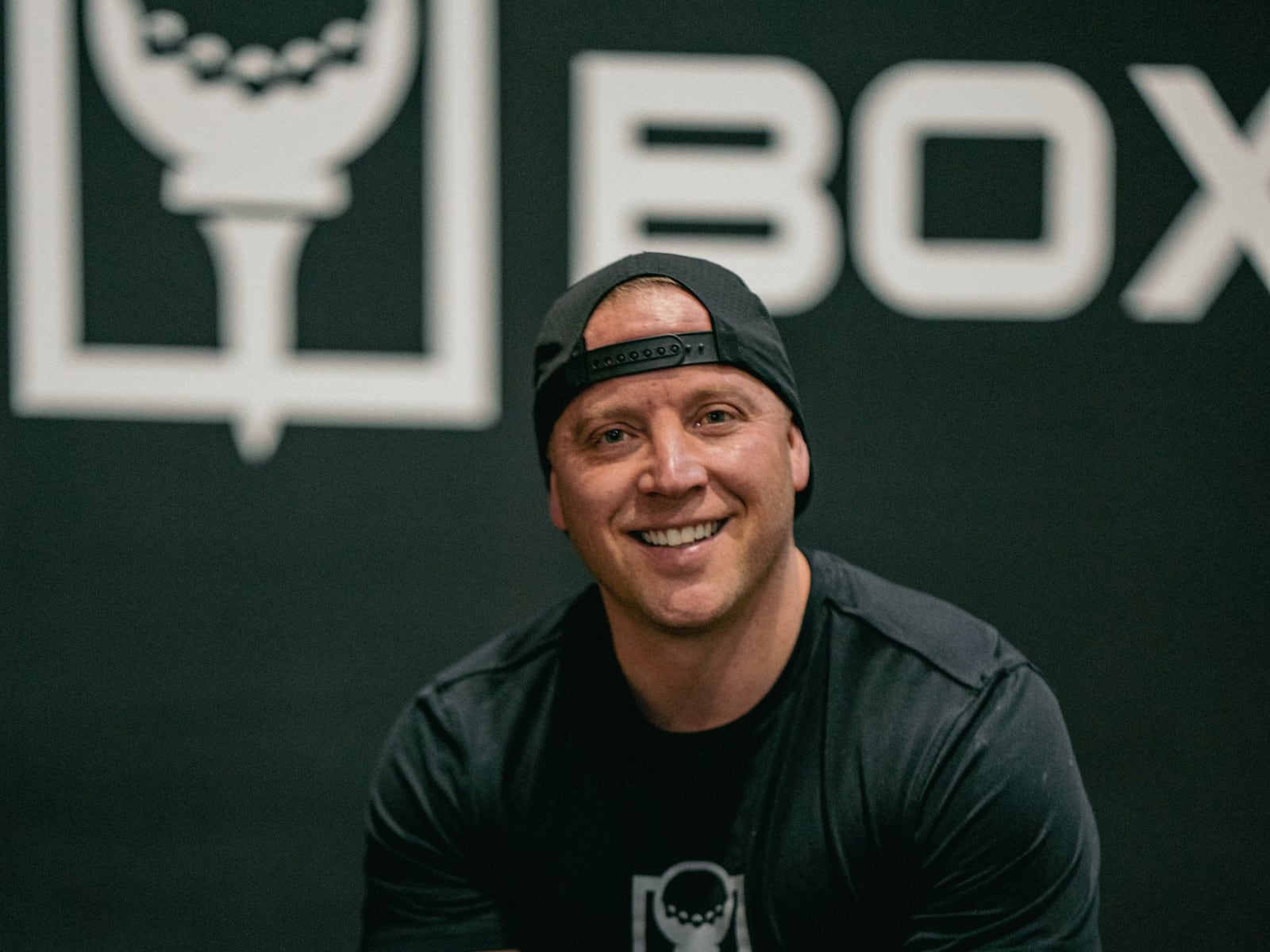I didn’t begin my career expecting to disrupt the golf industry by helping athletes improve their game year-round, but that’s exactly where my journey led me.
Prior to this, my 9-5 looked very different. I was helping launch a sales team that sold conference room displays. Once we grew to 150 employees and $12 million, the owners sold to WeWork in 2018. It was a fortunate — even timely — exit, and it allowed me a new role at LucidChart. I helped launch an enterprise team, and my eyes were opened to the high-growth processes the company really excelled at.
Within 18 months, the processes were thriving. Excitement was at an all-time high, but I felt like I was missing out on something. My experience felt unlike some of the other companies I’d been a part of, where I knew everyone and their families, and everyone had a stake in the business.
When you share an intimate experience with people at a startup and then move into a corporate space, you can sometimes lose a little of that drive you were used to. It wasn’t a bad experience, just a new one.

What a little game can do
When COVID-19 hit, what I was looking for surfaced in a surprising way.
My retired neighbor next door resembles the neighbor Wilson from the “Home Improvement” TV series. We had our share of talks where all I could ever see was the top of his head over the fence. One day, he invited me to play golf in his men’s league. I had no business playing against anyone and hadn’t even completed a full round of golf in 5-10 years. But bored at home, I took him up on his offer; I dusted off my Nike Slingshot irons and joined my neighbor.
While playing against men much older (and much better at the sport) than I, the competitive bug bit me. Right away, I wanted to see how good I could get. I had the thought that maybe I could even compete regularly again. Growing up, I was on baseball, football and basketball teams, but now I was a grown man competing against other grown men, and a switch was flipped.
The more I committed to the sport, the more I tried to improve. I bought new clubs. I joined the Ogden Country Club. My kids even started golfing. When winter hit, though, it felt like I’d hit a stopping point when I was just beginning to enjoy the sport. What was I supposed to do now?
For the rest of 2020 and into early 2021, an idea started to formulate, and it hailed back to when I was working in startups alongside ambitious entrepreneurs. Why not start an indoor golf facility to aid other newly competitive sorts like myself and the rest of the Ogden, Utah, community? Player development could happen year-round, and it’d be especially helpful when the seasons change and snow starts covering the green.
Just like that, the idea for Tee Box was born.
A place to train
Leaning on my background, I started to notice technological gaps, not just in the golf space but also in player development. That caused me to think in new ways about what might be possible and how I might fill some of those gaps. I was still at Lucid, enjoying all the benefits and securities a corporate lifestyle provided. Still, I missed the hustle of starting a company from the ground up and offering a service in the marketplace that didn’t exist yet.
I worked out a plan that involved convincing my wife (aka my boss) to move to a risky startup instead of staying at a secure company that paid well and didn’t send me away from home much. It also involved regularly playing two four-hour rounds a week, almost out of necessity. Golf got in the middle of our limited time together, but we found our way.
As we moved forward, it was as nerve-wracking as it was exciting. And it was new territory for me. In software, I never had to put any deposits down on a space. I could have created a business in my basement if I wanted to. To put a first and last month’s check down and commit to paying rent for three years was harder to wrap my head around and a real leap of faith. Since then, though, I’ve not looked back.
Opening our first location helped scratch my itch to golf year-round. I needed a place to train and wanted to get better. Becoming a better athlete included improving physical fitness, mental health and nutrition. Training is part of learning how to perform better by following proven methods and creating a facility that allows that.
When we opened, we simply hoped 30 members would sign up and allow us to pay another month’s rent. But people were so excited about what we were offering, and the demand surpassed our highest expectations when 120 members signed on that winter.

Making an impact
I started to see the bigger picture and the impact we could provide. It quickly became our mission at Tee Box to inspire people through the game of golf, and the Ogden community showed up for what we built. I saw junior high and high school kids coming to train before golf team tryouts. I saw parents find a place that cultivated a process to help these kids actually improve instead of just dropping them off at a course and watching a pro golfer play.
While we addressed those gaps locally, we discovered that the economics of using a minimal subscription program also worked in our favor. Scaling could be successful. Gathering brighter minds than my own, we built a business plan that proved that. Raising $4.5 million in a traditional seed round followed, and we started opening up multiple locations.
In the spring of 2022, it was time to fully commit: I finally said goodbye to corporate life. I got my wife’s blessing to go without collecting a paycheck for some time. From an entrepreneur standpoint, I thought that the company would need to be as big as Qualtrics or Domo if I were truly going to make my mark. I learned otherwise. When I started to look closely at what we were building, I saw us growing much like those software startups had. More than one customer wanted to buy what we were providing. It had early signs of growing legs across the country. There was a need for this.
It did take courage to go all in based on a small recipe for success. The more I considered it, the more I realized it didn’t need to be exactly like those companies I admired. Thinking smaller could work just as well. Could we solve a small problem and make a living doing so? It seemed likely.
Making an impact was more important. We were able to help high school kids in training for regionals, and we still do so. They use Tee Box to become better players.
Money isn’t everything, but experience is. If you start a company just to make a buck at the end, you sell yourself short: you miss out on the journey you get to have along the way.

Obstacles exist to move past
There have been obstacles along the way, and one early obstacle was building a concept around an indoor golf simulator company that would attract millions of fundraising dollars.
People often agreed that Tee Box was an excellent idea, but raising money was initially challenging. Instead, we turned that into wood in the fire; we proved successful with our concept of an indoor golf space and received interest from investors, including Reef Capital Partners. They considered ours a smaller idea, but they saw the upside. They were interested.
Every entrepreneur needs a sound vision of what can be and prove it, even if it’s initially 10-20 percent of that real vision. I had to delay some growth because I didn’t have the monetary resources I needed right away. It took time to show others what was possible, but we were able to. Today, we continue to find new ways of proving it.
Creating a golf business while not being considered a great golfer was another challenge; it meant taking a different spin on the sport. It’s healthy for the business around golf to have somebody thinking beyond traditional norms. Before COVID, the economics and business behind golf were failing. It was not attracting the next generation of golfers. Still, the pandemic increased interest and accessibility, and I’m a direct result of that.
I went from golfing one day with my neighbor to growing 25 locations across the state, and Tee Box is just getting started. Talking through options with a lot of intelligent people and taking on incredible investors led us forward. Golf has its way of bringing everyone together.

The next phase is here
When a startup makes it through the phase of not knowing if it’ll be able to pay the bills and doesn’t immediately start taking bigger risks — the necessary ones — it can be difficult to grow. Lucky for us, we’re turning profits. Tee Box is continuing to expand.
One way we’re quickly expanding is by franchising. In 2023, Trackman came to us and said they loved our player development model and wanted to partner in a franchise program they were launching. Right away, I told them we were more focused on disruption, but we’d consider it.
In the end, it made sense. Trackman is filled with like-minded individuals who want to change the game of golf in radical ways, and there’s energy behind that. Now, we’re building a company that will sustain and mature franchisees, helping them succeed. We’re continuing to build our team now so we can ensure proper support for our franchise growth.
If we impact the game on a large scale, we’ll have been successful. When a kid takes state or makes a college or high school team, we hope we contributed to that success and the personal impact we’ve been part of. As a company, we’re still very hungry.
Part of what has helped me remain that way is taking my family along with me. When you’re allowed to take career risks like this, you need a solid support structure: my wife and children are mine. Too many times, founders get all the credit, but the committed spouses who hold them up when no one else is around are the ones who help build their confidence and exhaust themselves for their family’s every need. Danielle has been the backbone of Tee Box. Having support in your home is the most important win of all.
My kids are my inspiration; from my two beautiful daughters lighting it up on the dance floor to my two boys loving the game of golf like dad, I feel I have it all. To build something at this stage of life that my kids get to witness feels essential. They get to be part of a goal that keeps their dad up at night, one that causes tears of both joy and pain. Too many successful people forget their family, but they will forever be attached to my reason for doing this.
When you’re an entrepreneur, putting your heart and soul into your business usually leads to risk for the family as well. I’d tell my mom I had ideas that would change the world and was set to do big things. In response, she’d remind me to take care of my family. But when she saw my passion and how it impacted the youth, She said I should do it. She passed two months later.
It’s OK to recognize the forces outside of your own power that will always influence your business. Sometimes, we forget that, and we shouldn’t. I hope that all we’re doing at Tee Box will allow for lifelong positive impacts on my family and thousands of others around the country.


